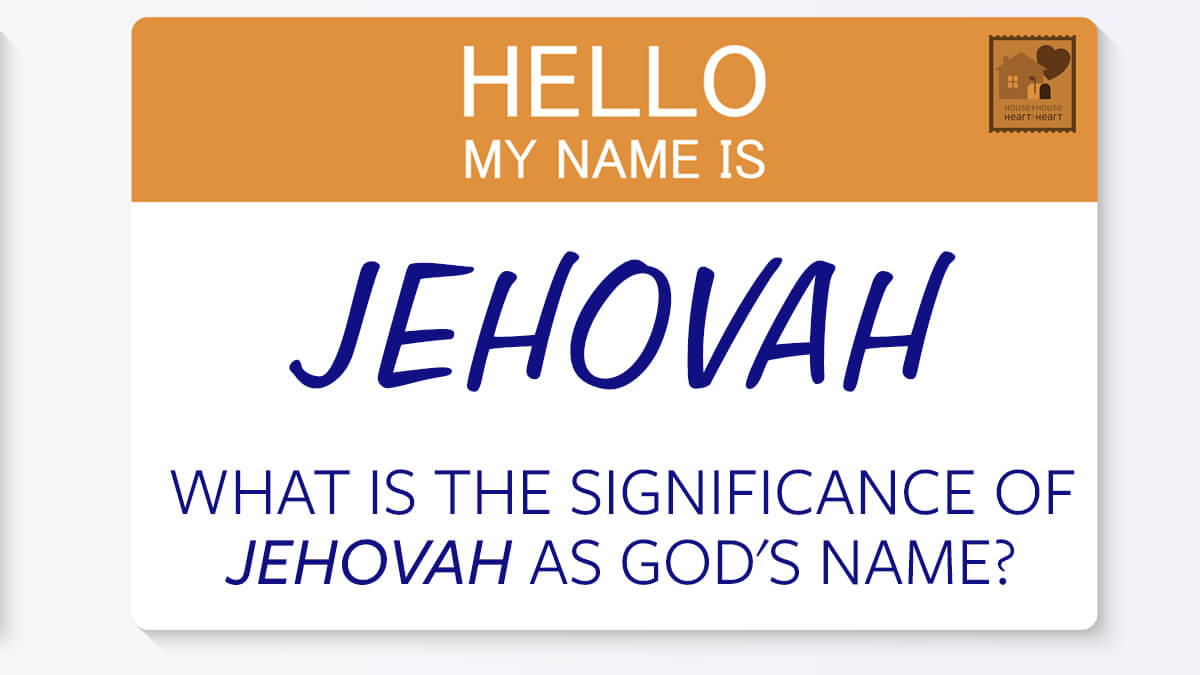Names are important. It is difficult for us to conceive of things apart from their names. The many different names for God in the Bible describe and demonstrate His character. Jehovah (usually rendered “Lord” in the King James Version) appears often in the Scriptures. Jehovah means “the Eternal One, the Unchangeable One, the One Who was, and is, and is to come.” When Moses met God in the burning bush, he asked His name. “And God said unto Moses, I AM THAT I AM: and he said, Thus shalt thou say unto the children of Israel, I AM hath sent me unto you” (Exodus 3:14). God spoke as Jehovah, the self-existent God.
The Hebrew people came to consider one particular name of God His personal name. Scholars call this name, derived from four Hebrew letters, the “tetragrammaton” (from “tetra,” four, and “gram,” letter). The Jews were so concerned about using this name in vain that they would not even pronounce it when reading the Bible aloud. (They substituted Adonai meaning Lord.) As a result, the proper pronunciation of the original Hebrew is unknown. Most scholars say “Yahweh” or “Yahveh” is likely the proper pronunciation, although Jehovah has been used since the sixteenth century.
The Bible stresses the importance of respect for God by emphasizing the importance of the name of God. Solomon said, “The name of the Lord is a strong tower: the righteous runneth into it, and is safe” (Proverbs 18:10). The psalmist said, “He sent redemption unto his people: he hath commanded his covenant for ever: holy and reverend is his name” (Psalm 111:9). Isaiah spoke of “the high and lofty One that inhabiteth eternity, whose name is Holy; I dwell in the high and holy place, with him also that is of a contrite and humble spirit, to revive the spirit of the humble, and to revive the heart of the contrite ones” (Isaiah 57:15). Jesus told His disciples, “After this manner therefore pray ye: Our Father which art in heaven, hallowed be thy name” (Matthew 6:9).
The third commandment warns, “Thou shalt not take the name of the Lord thy God in vain; for the Lord will not hold him guiltless that taketh his name in vain” (Exodus 20:7). Although this commandment is part of the old covenant, the need for respect for the Lord’s names continues. Paul wrote, “Let as many servants as are under the yoke count their own masters worthy of all honour, that the name of God and his doctrine be not blasphemed” (1 Timothy 6:1).-Bob Prichard






